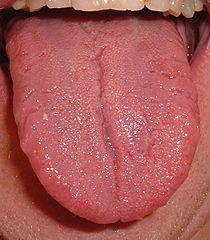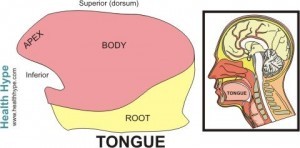Burnt Tongue Feeling – Causes and Disease Symptoms
At some point or the other in life, we all tend to eat or drink something that is too hot for our mouth to bear. Even if the temperature is not high enough to cause serious injury, it does cause some degree of irritation that leaves a lingering burnt feeling in the mouth. In these instances we understand that this burnt sensation is due to the hot food or drink. But sometimes the burnt sensation occurs despite not having consumed anything hot. In these instances, this abnormal sensation is considered to be a symptom and may occur in certain diseases.
Burn Injuries
The tissue lining the surface of the mouth cavity, including the tongue and gums, do not have the same protective properties as human skin. It can therefore be injured much easier. The tongue in particular is very sensitive because it contains hundreds of thousands of receptors to enable it to detect taste, texture and temperature. It can therefore be easily injured by physical and chemical factors. The main physical trauma is heat, mainly hot food and drink. Tongue piercings may not burn the tongue but can leave a burning sensation. Chemical burns can have a similar effect. Corrosive chemicals may be consumed intentionally or accidentally.
Foods and Spices
A number of foods and spices may be responsible for irritating the nerve endings or damaging the tissue of the tongue. Some can even cause chemical burns in large quantities or if concentrated. This may leave a lingering burnt sensation on the tongue. Usually it is an additive in the food that is the cause, and mainly it is spices which are used in excess. Sometimes these spices are consumed on its own. Black pepper, cayenne pepper, chili peppers, cloves and lime powder are some of the spices that can irritate the tongue although it usually has a short term effect.
Lifestyle Habits
There are several lifestyle habits that may injure the tongue tissue and lead to a burnt type of sensation. One of these is very hard or rough brushing of the tongue during daily hygiene routines. Tiny micro-tears can also form on the tongue surface and be very sensitive to touch, pressure or contact with hot/cold foods and drinks. Tobacco smoking, alcohol consumption and the use of illicit substances that are eaten or smoked may also injure the tongue tissue or disrupt the normal sensory functions of the tongue. In terms of alcohol, home brews and moonshine are more likely to be a problem. Certain chewable nutritional supplements may also irritate the mouth tissue.
Dryness
Dryness of the mouth is a common symptom that may occur for a number of reasons. It is known as xerostomia. Long standing mouth dryness is often related to the use of the certain prescription medication and salivary gland problems. Mouth breathing can also cause it. Often the dryness is not the cause of abnormal sensations in the mouth but rather these two symptoms arise for the same reason. However, it is important to note that saliva plays an important part if moisturizing the tissues of the mouth and surface of the tongue. A lack of saliva may therefore make the tongue feel thick and “funny”.
Deficiencies
Mouth and tongue symptoms can be associated with certain nutritional deficiencies. It mainly occurs due to nerve irritation or dysfunction from the lack of the nutrient in question. A burning tongue sensation is mainly seen with a deficiency of the B-complex vitamins. A deficiency of the micro-nutrients that may be the cause include that of cobalamin, iron, folate, pyridoxine, riboflavin and thiamin. The severity of the symptoms largely depends on the degree of the deficiency.
Burning Mouth Syndrome
Although an uncommon condition, burning mouth syndrome is one of the major causes of a chronic burning tongue sensation. The pain also extends to the lips and inner cheek but can occur anywhere in the mouth. There are different types of burning mouth syndrome and the causes can be broadly divided into primary and secondary. Primary burning mouth syndrome is where the condition occurs on its own with no underlying cause. In fact the exact cause is largely unknown. Secondary burning mouth syndrome is due to other conditions, ranging from dental problems, to a host of diseases, side effects of some medication and dry mouth.
Other Symptoms
One or more of the following symptoms may also be present in burning mouth syndrome.
- Tongue pain.
- Tingling, numbness and other abnormal sensations of the tongue and possibly mouth.
- Excessive dryness of the mouth.
- Abnormal thirst.
- Reduced taste sensation, loss of taste or unusual tastes.
- Abnormal marks, projections, lesions or color of the tongue.
Diseases
Many of the following diseases may be a cause of secondary burning mouth syndrome. It can cause a burnt feeling on the tongue even without any other symptoms. Pain may not always be present.
Allergy
A food allergy may cause localized inflammation of the tongue and other parts of the mouth. This occurs when the body’s own immune system overreacts to a harmless substance. Food allergies may also cause a systemic reaction. There is a risk of swelling of the throat and breathing problems in anaphylaxis.
Endocrine
There are a number of endocrine problems (involving glands and hormones) which may be responsible for a burnt tongue feeling. This includes diabetes mellitus where the body is unable to regulate blood glucose levels as normal. It may also occur with hypothyroidism where the thyroid gland is underactive.
Infections
Mouth infections can also affect the tongue and cause pain or unusual sensations. The herpes simplex virus (HSV) can cause mouth problems which are known as herpetic stomatitis. Oral candidiasis is an yeast infection of the mouth with whitish-yellow plaques visible on the tongue and inner cheeks. It is rarely seen in people who have a healthy immune system.
Neuropathy
Nerves carry sensory signals from the tongue to the brain. In this way taste, pain, temperature and texture is relayed to the brain for decoding. If these nerves are damaged or diseases (neuropathy) in any way, there may be abnormal sensations felt on the tongue even if there is no problem or stimulation of the tongue receptors.
Psychiatric
Sometimes people with anxiety or depression may experience abnormal sensations like a burnt tongue feeling even though there is no problem with the tongue. In fact burning mouth syndrome was at one time though to be psychogenic in nature. Certain psychiatric medication can also cause these sensations as part of the side effects.
Upper GI
Gastroesophageal reflux disease (GERD) which is also known as acid reflux may also cause a burnt tongue sensation. The acidic stomach contents rise up into the esophagus and can reach as high up as the mouth. The corrosive acid can then cause chemical burns of the tongue and mouth. This may leave a burnt feeling sensation even after the acid is neutralized and flushed out of the mouth.






